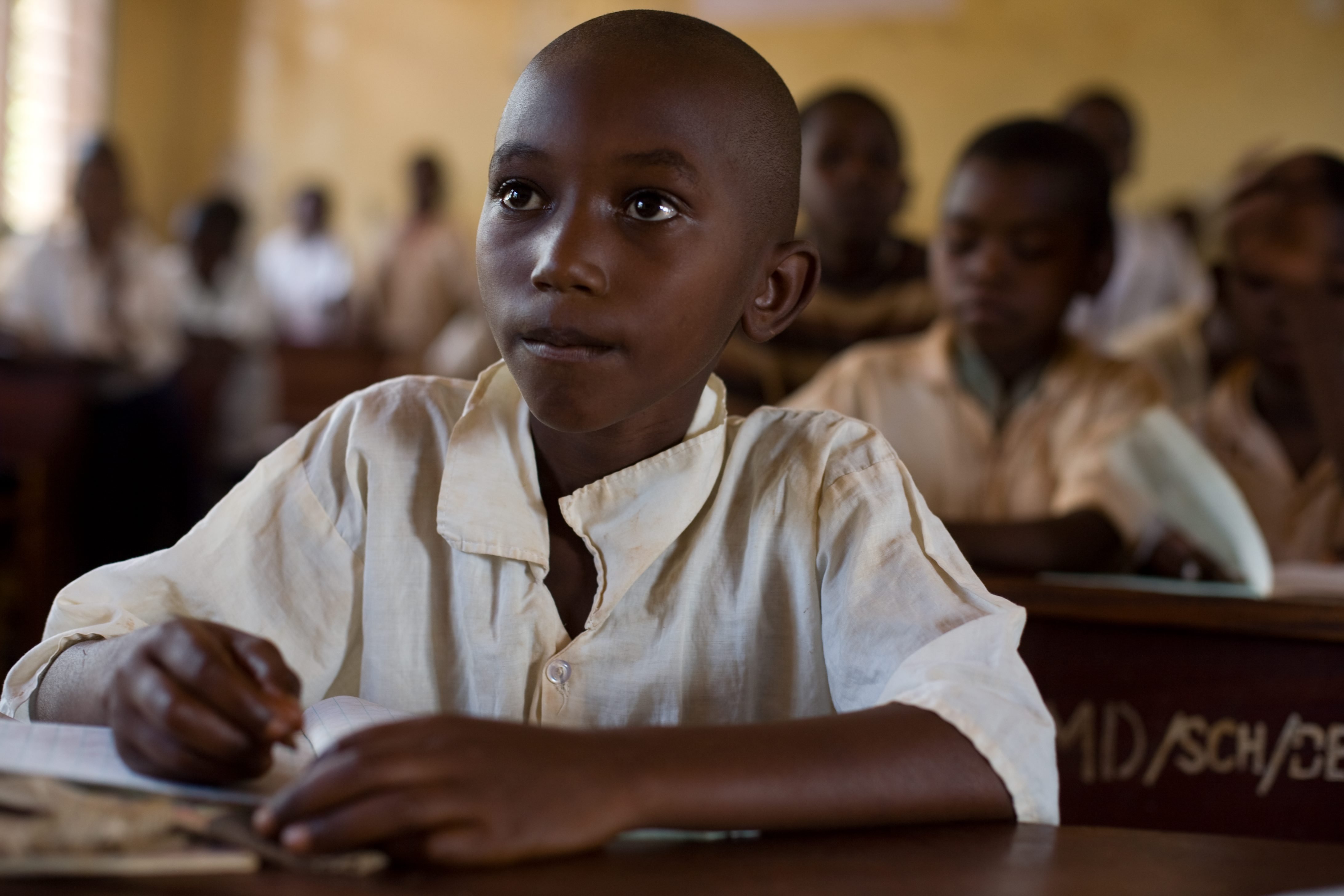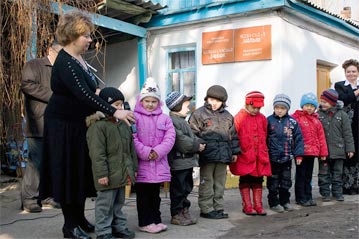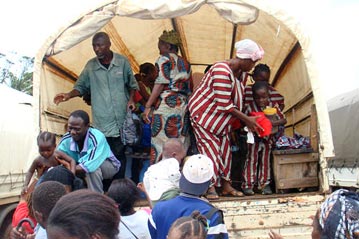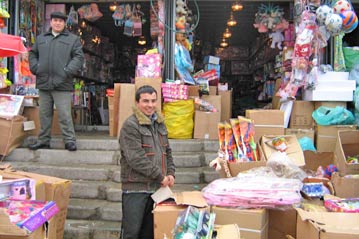When going home is not an option: local integration in Guinea
When going home is not an option: local integration in Guinea

CONAKRY, Guinea, July 20 (UNHCR) - Ousmane Mansaray is not easily swayed. Although tens of thousands of his compatriots have gone home to Sierra Leone, he's determined to stay in exile in neighbouring Guinea.
"I don't want to go back to my country where my father was savagely assassinated in front of me," he said with tears in his eyes.
Before he was forced to flee Sierra Leone, Mansaray was a shopkeeper who bought and sold jewels. Now, he lives with his family in Boreah camp in the sub-prefecture of Albadariah in Kissidougou, southern Guinea. He farms for a living while his wife is a teacher's assistant. Their four children attend school in the camp.
Mansaray is among 2,111 Sierra Leonean refugees who stayed in Guinea after the UN refugee agency ended its voluntary repatriation operation to Sierra Leone in June last year. More than 97,000 refugees returned to Sierra Leone from Guinea through the organised movements that lasted about three-and-a-half years.
Voluntary repatriation, local integration, and resettlement to a third country are three options in UNHCR's search for durable solutions for refugees.
"I want to settle definitely in Guinea, a country that offered us hospitality. I keep up good relations with the local population, and UNHCR makes all the possible efforts to give us the assistance we need," said Mansaray.
He added, "Today, my dream is to find a piece of land where I could build my home to live with my family. All that I have today is the support of UNHCR and its partners to create an activity that generates profits which will help me to have a decent life after I settle in the village, because I want to continue living in Boreah."
To facilitate local integration for refugees who desire it, UNHCR has set up three projects in the areas of agriculture, income generation and education. This last option allows young people to go to school and benefit from intensive training in French so that they can better integrate into the local school system.
The refugee agency has also appealed to the Guinean government to regularize these refugees by giving them appropriate identification documents.
"These refugees are all citizens of countries of the ECOWAS (Economic Community of West African States), so there won't be any problem in this way," the Guinean Minister of Territorial Administration and Decentralisation has said, giving the refugees a chance to obtain permanent residence and nationality.
For more than a decade, UNHCR has provided protection and assistance to almost 1 million refugees in Guinea who fled civil wars in Liberia, Sierra Leone, Guinea-Bissau and Côte d'Ivoire.
Today, the seven refugee camps in south-eastern Guinea shelter a total of 69,197 refugees - 2,111 refugees from Sierra Leone, 63,062 from Liberia and 4,024 from Côte d'Ivoire.
More than 15,000 Liberian refugees have repatriated from Guinea with UNHCR assistance since the refugee agency started facilitating returns to Liberia in October last year.
By Fatoumata Diariou Tounkara and Rahma Hassouna in Conakry, Guinea








